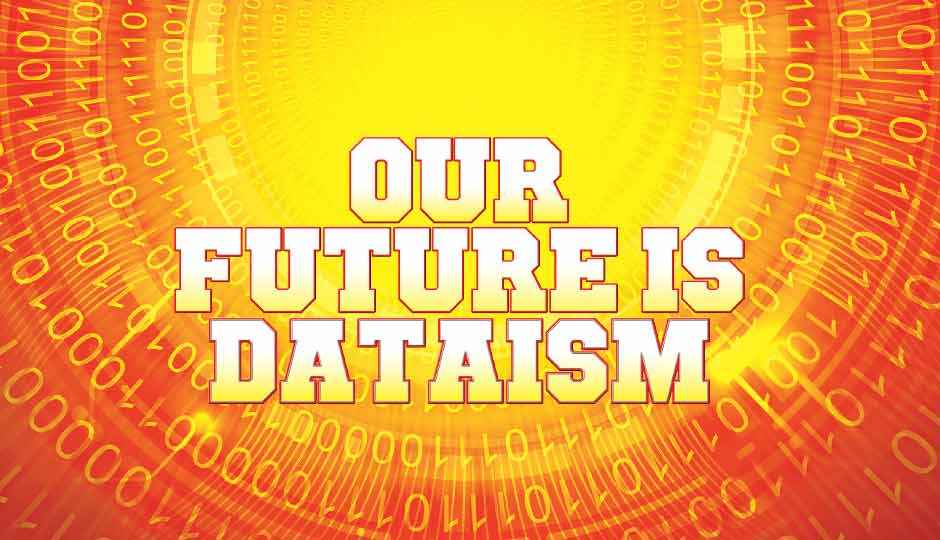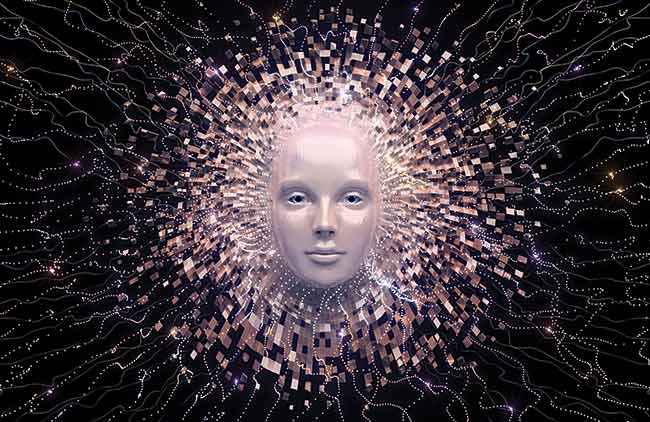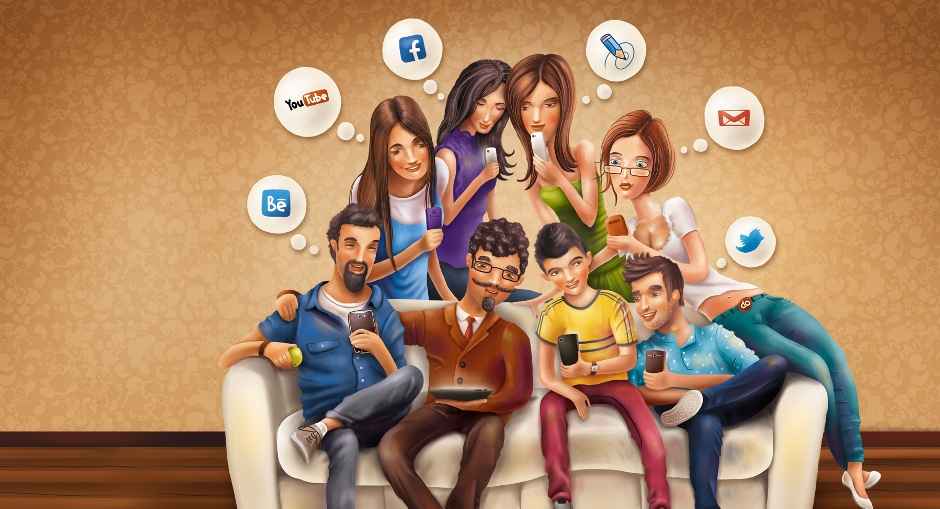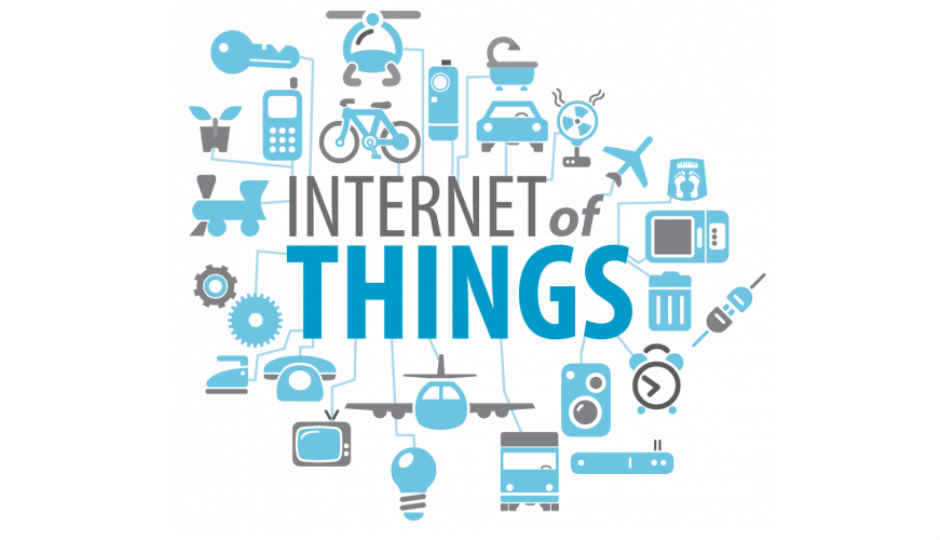Dataism is the religion of the future, and we’re already believers
Data is magical. Data is omnipresent, and without Data there can be no way to master the Force.

Humanity’s tryst with religion has been an interesting one. We worship and pray to an unseen God through what’s written down in scriptures by ordinary humans made of flesh and blood – just like you and me. There’s nothing special about a religious priest or any other human authority claiming to represent God or brandish His divine Power of Attorney – which no one can verify. Yet, across the globe, a large portion of humanity chooses to believe in the power of religion. Trusting in blind faith over cold hard facts, following one’s heart rather than the mind, all quintessential traits that make us fallible (or is it gullible?) humans.
 Survey
SurveyTo borrow a term from Game of Thrones, all of us seem so busy worshipping and appeasing the Old Gods – the deities we inherited as a consequence of our birth and years of psychological conditioning – that we’ve scarcely left any thought for the New Gods (The Seven). If God is supposed to be omnipresent and all-knowing, it can be argued that Data is its most tangible manifestation in this Digital Age of ours circa 21st century. For Data is both everything and nothing, it is seen and unseen, creator and destructor of the world. If the Vishnu Purana were to be rewritten now by a tech-savvy, digital monk (instead of a hermit sage meditating in the woods many moons ago), pretty certain the tenth reincarnation of Lord Vishnu scheduled to appear in the future would have been Data – and not Kalki. Just like Kalki promises to rid humanity of all evil and usher in a new age of bliss and universal bliss, so does Data hold the potential to help us conquer our innermost demons, unlock the hitherto unseen human potential and guide our civilization to greater heights.
Data is truly magical. To use an analogy from the Star Wars Universe, if we are all Jedis then data is the midi-chlorian in all of us directly influencing our ability to control and master the mystical Force. Data is omnipresent, and without Data there can be no way to master the Force. With it we are powerful and invincible; without it we are vulnerable and certain to diminish.
How is Dataism all-powerful?
An algorithmic order-driven world is on the horizon and it’s approaching fast. Through the wonders of machine learning and breakthroughs in artificial intelligence, in the future data is going to dictate our lives unlike any other divine doctrine or man-made religion we’ve ever known. No longer will we study horoscopes, astrological signs, consult holy books and holy men, if dataism has its way – and it will. We will live our lives under a different code, one that’ll be less forgiving, emotionless, devoid of personal prejudice or bias. A far more analytical life, where decision-making is based completely based on cold hard data alone.
Welcome to post-humanism. If you’re wondering what that is, it’s nothing but a more dispassionate, more analytical, more logic-driven approach to justify our existence in this world. In post-humanism the malaise of subjectiveness plaguing humanism is severely reduced and the role of the nonhuman agents, especially that of computers and advanced data management / inference systems, is emphasized. Welcome to Dataism. Our new religion. The coolaid from humanity’s imminent future.
All hail Data!
Think of it as a ground-breaking new way of measuring, seeing, deciding and instructing. A way to live based on highly evolved techniques of analyzing all kinds of data. From browsing histories to shopping patterns, from tracking GPS for location-based services to studying your genomic information to predicting your physiological future and lifespan. And a lot, lot more. Essentially, dataism will usher in a highly customised sense of reality served to you by sensing and gathering unimaginable levels of personal, private and public information to influence your worldview. Powerful software networks driven by machine-to-machine communication (thanks to the rise of Internet of Things) is increasingly going to collect complex, sophisticated data points about us, our surroundings, our world, and more to a level we can’t even imagine and certainly can’t comprehend on our own.
All of this insurmountable data when fed into machine-learning software and artificial intelligence are going to help us gain acute insights into pretty much every facet of our individual and collective lives. This sentiment is at the heart of Dataism, that it will provide us with a brand new point of view, a more logical and analytical philosophical argument about how decisions will be (or perhaps should be) made in the future. According to its early proponents – which are Silicon Valley executives and tech oracles – Dataism argues the universe to be nothing but flow of data from one form to another (much like the law of conservation of energy) and that organisms are nothing but biochemical algorithms manifested in flesh and blood. Much like the holy grail of physics which tries to bind all of the known and unknown universe into one, all-encompassing theory – the Theory of Everything – humanity’s role in this constant flow of data is to make sense of the universe through a homogenous, all-pervasive data-processing system. And we are well on our way to realising this dataist world very soon.
Data works in mysterious ways
Our voracious appetite for creating and consuming data is at an all-time high. Every second, every minute, humanity uses, creates, saves and shares mind boggling amounts of data – more than it has ever done so since the beginning of time. Technology’s all consuming effect is already evident, just pay attention to your daily routine and you’ll realize just how much of an all-consuming this digital force is. Our digital lives are all about recording or capturing life’s moments, uploading it online and sharing it with friends and on the Internet at large.
Just imagine how much data is created and shared by us. Every day we consume steadily increasing data bits through emails, online articles, phone conversations, video calls, etc., process all of it and send back newly created data through emails, articles and phone conversations. Just in the form of WhatsApp forwards on a daily basis – not just text messages but heavier images and even heavier video files. All consumed and shared within seconds with either an individual contact or hundreds in a closed group. If the message is particularly interesting it will be shared even more; if it’s epic then it has all the potential of going viral and leaving a seismic impact on the data replication scale. Some of these activities seem devoid of conscious thought, relegated to mere twitches of conditioned muscle memory. We are all essentially being reduced to drones on autopilot, going through the motions of our ever-increasing digital indulgence. Like billions of tiny transistors in a giant computer chip that mechanically responds to external binary stimulus without any thought.
When we interact on Facebook everyday, post status updates, respond to friends’ updates, share interesting jokes, memes or videos for others to see – or you do something similar on Twitter, Instagram, Snapchat or any other social networking platform of your choice – are you simply obsessively compulsively doing these things because you miss interacting with friends, or are you interacting online because that’s the cool thing to do? Or is it simply that you’re bored and going through the motions, for a lack of something better to do? We don’t introspect every time we do these things, do we?
Have you ever wondered if the mundane things you indulge in online, maybe, have a greater purpose? Whether this digital addiction that we’re all afflicted with fits into a greater scheme of things? We all already know the answers to these relentless questions. We don’t really know where we all fit into this digital data web at an individual level and how our data connects with others and how this relentless flow of data contributes towards new innovations and disruptions that come about on their own; something that no one actually plans, fully controls or understands. And frankly, to be completely honest to you, dear readers, nor do we have the time to find out or ponder over such trivial day-to-day activities that we take for granted – because we’re all busy being a part of the data-driven digital journey.
No one needs to understand anything, right? As long as you have a ton of email to respond to, scores of messages to laugh at and forward on Whatsapp, seek approval from online friends on Facebook, stick to your smartphone like a dog on a leash, it’s all going to be fine. You’d have done your job to keep the data flowing. That’s what Dataists (followers of Dataism) believe. Just as capitalist economists believe in the incredibly hard to describe invisible forces of free-market that forms the bedrock of the global economic system, so Dataists believe in the forces of dataflow and its increasing ability to shape our fortunes and become the source of all meaning in this world. In this data-driven world which is slowly coalescing into an all-encompassing, worldwide system of data points to analyze, given the right amount of biometric data and computing power, dataists believe that data-driven systems could understand humans far better than we are capable of understanding ourselves. A scary thought. Is it really?
| Recommended reading: |
|---|
| While researching for this article, the author came across two seminal books on the topic that makes you think. If you liked this article and want to know about how all-consuming data is shaping our impending future then give Steve Lohr’s Data-ism a read. Also don’t miss Yuval Noah Harari’s Homo Deus: A Brief History of Tomorrow. Truly insightful and thought-provoking. |
Dataism and our future
Of course, Dataism can’t thrive and be convincing enough without a few miracles – nearly every religion on the face of this planet has a few to their credit that hold believers in sway. The wonders and miracles of Dataism is going to be a lot more individualised and personal, therefore more convincing to believers of its cause. Let’s explain this further.
All this while we believed that ‘feelings’ were spiritual in nature and humanity had to thank religion to help us tune into what our heart desired. But feelings aren’t necessarily the opposite of rational thought, as they’re nothing but highly evolved rational thought that comes naturally or without expending a lot of effort. For example, when a deer, buffalo or human is confronted by a deadly wild predator, the feeling of fear as a response is generated by capturing visual data and biochemical algorithms processing it to calculate the probability of survival. In the same way, feeling of sexual attraction between two people arises when biochemical algorithms in our brain, based on visual data, calculate the probability of a high chance of successful copulation. In short, feelings aren’t spiritual, just highly evolved biochemical algorithms over millions of years of evolution. We certainly don’t have religion to thank for it.
This is where things become really tricky with Dataism. Because if feelings aren’t spiritual in nature, then so is the concept of ‘free will’. Everything mystical or spiritual about our brain’s (yes, brain, no hearts don’t make decisions based on feeling) ability to make decisions is based on purely age old biochemical algorithms perfected over millions of years of accumulating and interpreting data (thanks to evolution). And up until now, our desires and choices were only known to us, whether we were religious or not. Religious authority dictated how we should live our lives but lacked the tools and data to get an insight into our personal biochemistry to accurately ascertain the intangible thoughts and feelings germinating inside of us. From the outside you could be a Hindu to everyone else, but no Hindu authority could tap into your brain to see if you always had pious thoughts or led your life in accordance with scripture.
But where religion failed, Dataism will prevail
Thanks to advances in medical science and the explosion of data-computing power, our thoughts and decisions may not wholly belong to us in the future. Medical frontiers are being broken every year and we’re closer to understanding how the brain functions, how thoughts are formed, what influences them and the biochemical process that conducts this subliminal physiological orchestra inside our body. Pair that with massively complex data systems – the future of IoT where multiple systems seamlessly exchange data with one another – tracking your every move online and vitals like heart rate, perspiration rate, pupil dilation, and more.
At the confluence of these two breakthroughs in human medicine and unprecedented compute-power, we will be constantly tracked and analyzed, generating big data on a truly epic scale. Algorithmically-driven digital systems, thanks to advancements in machine learning and artificial intelligence, will at this point more know about you than you know yourself. They’ll know our feelings much better than we could ever hope to know. That process has already begun. If you read a few books on Kindle, Amazon knows exactly what genres excite you and where you stop reading books, to push you towards what you’re most likely to buy. The constant unravelling of the human genome has led doctors to understand terminal disease causing genes – if it’s present in someone, preventive measures to prolong life can kick in much much earlier than before. Google’s tracking you all the time through your emails and search history, so is Facebook through its global social network, and every other global Internet-based business.
We create and share data willingly, and yet – in a not so distant future – the very thing that makes us human will be consumed by data itself. Data is the key that will rid us of our human condition. Maybe it won’t be so bad after all, if it means our species progresses to embrace its cosmic destiny.
This article was first published in October 2016 issue of Digit magazine. To read Digit's articles first, subscribe here or download the Digit e-magazine app for Android and iOS. You could also buy Digit's previous issues here.
Jayesh Shinde
Executive Editor at Digit. Technology journalist since Jan 2008, with stints at Indiatimes.com and PCWorld.in. Enthusiastic dad, reluctant traveler, weekend gamer, LOTR nerd, pseudo bon vivant. View Full Profile


